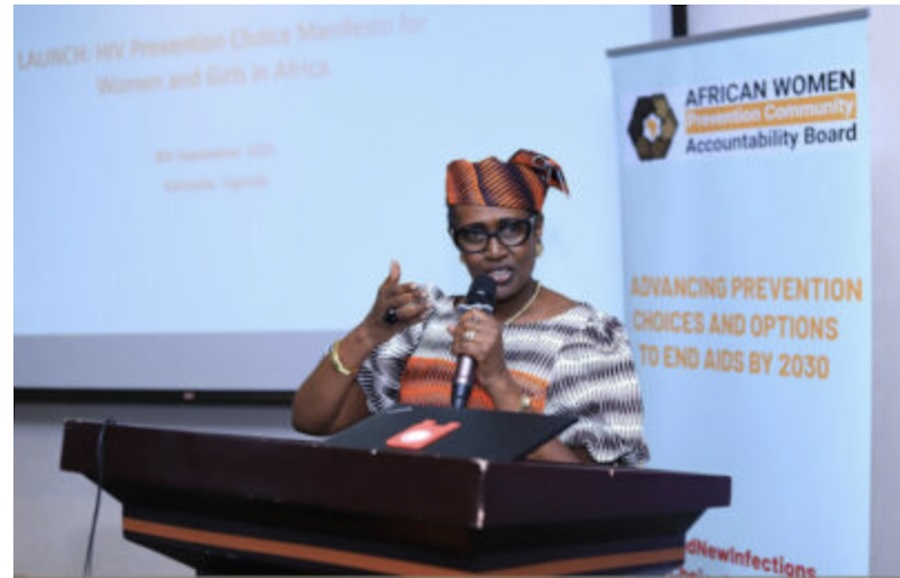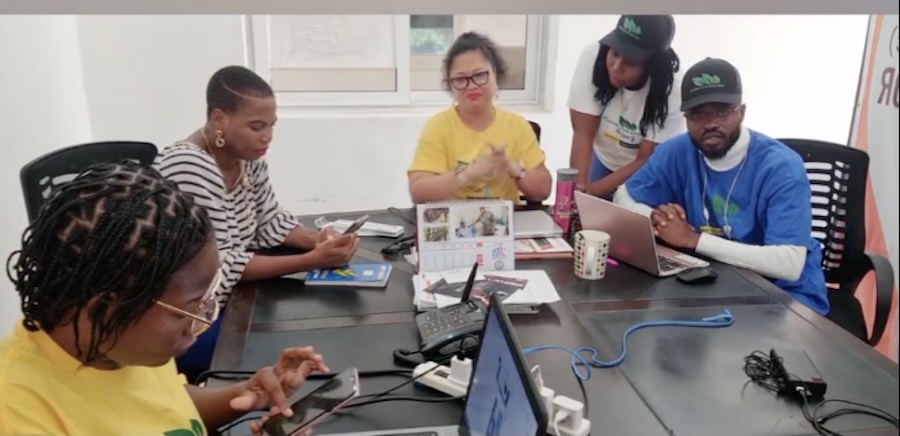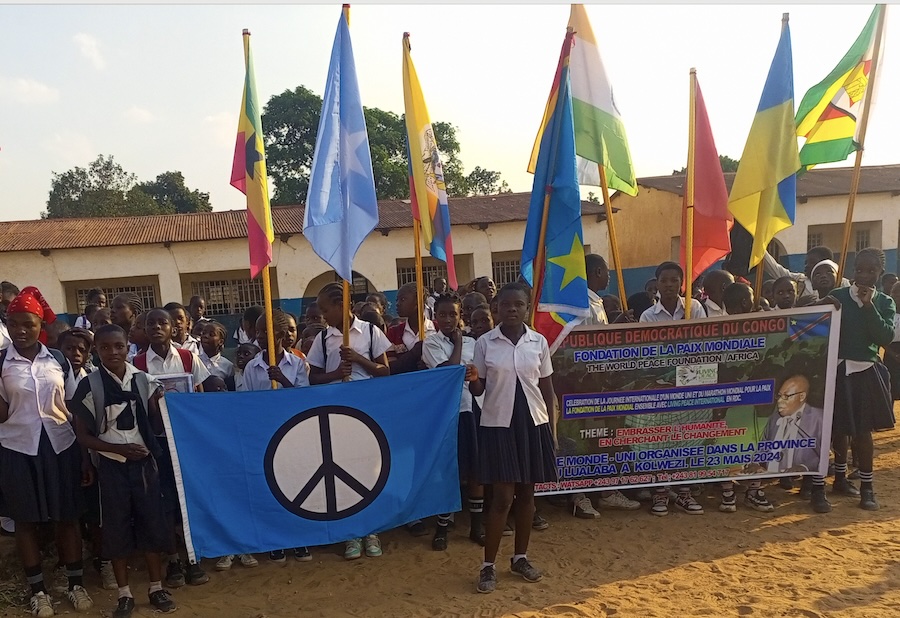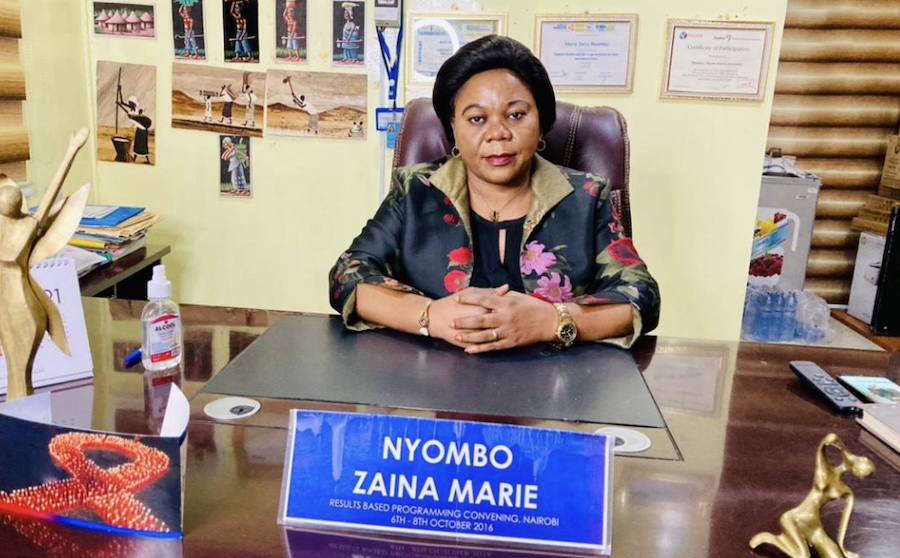FREE FLOW OF INFORMATION
Excerpt from the website of the Gabon Review (translation by CPNN)
Drawing on his experience as a former actor in cooperation between Gabon and UNESCO, Juste Joris Tindy-Poaty takes stock of Gabonese initiatives in three key areas: the appropriation of international scientific programs, the implementation of the Program for the Management of Social Transformations (MOST), and the contribution to the Action Plan for a Culture of Peace in Africa. His analysis offers a unique perspective on Gabon’s past achievements and proposes concrete avenues for consolidating its diplomatic position within this international organization. . . .
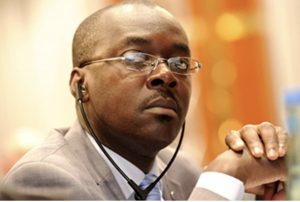
Doctor Juste Joris Tindy-Poaty, Assistant Professor in Philosophy, Former Secretary General of the Gabonese National Commission for UNESCO (2011-2015). © DR
On the eve of the 43rd session of the General Conference, which could (we fervently hope) confirm the election of one of our own, in the person of Ambassador Noël Nelson Messone, to the post of Director-General of UNESCO, we intend to provide here some answers to the following question: what has been Gabon’s presence at UNESCO to date and what could this presence be beyond? It is as a former actor in our country’s cooperation with UNESCO that we authorize ourselves to make this contribution. . . .
The national contribution to the implementation of the “Action Plan for a Culture of Peace in Africa/Let’s Act for Peace”
Designed to call for the creation of a “Continental and Sustainable Movement for Peace”, the “Action Plan for a Culture of Peace in Africa/Let’s Act for Peace” was adopted at the end of the Pan-African Forum “Sources and Resources for a Culture of Peace”, organized jointly with the Angolan Government, UNESCO and the African Union, in Luanda (Angola), from 26 to 28 March 2013. The objective of this forum, which eventually became a Biennale of the Culture of Peace [2] , was “to draw on the sources of inspiration and the potential of the continent’s cultural, natural and human resources to identify concrete courses of action to build sustainable peace, understood as the cornerstone of endogenous development and Pan-Africanism.”
(Continued in right column)
(Click here for the original French version of this article.)
The Luanda Biennale: What is its contribution to a culture of peace in Africa?
(Continued from left column)
Represented at the Pan-African Forum in Luanda in 2013, and as such a stakeholder in the implementation of the action plan calling for the creation of a “continental and sustainable movement for peace”, Gabon immediately worked to contribute to the creation, under the aegis of UNESCO and the AU, of a certain number of networks of civil society organizations in Africa and the Diaspora, namely: (i) the “Network of foundations and research institutions for the promotion of a culture of peace in Africa” (September 2013); the “Pan-African Youth Network for the Culture of Peace” (December 2014) and the “Pan-African Women’s Network for the Culture of Peace and Sustainable Development” (June 2018). Made up of more than 50 organizations, including UNESCO chairs, the first network has its permanent secretariat provided by the “Félix Houphouët-Boigny Foundation for Peace Research”, and its headquarters is therefore based in Côte d’Ivoire, more precisely in Yamoussoukro. Initiatives of Gabon, the other two networks have their respective headquarters in Libreville.
The “Pan-African Youth Network for the Culture of Peace”, made up of about 60 organizations, including National Youth Councils, was formalized at the end of the Pan-African Forum “African Youth and the Challenge of Promoting a Culture of Peace” organized from 11 to 13 December, jointly by the Omar Bongo Ondimba Foundation for Peace, Science, Culture and the Environment and the Gabonese National Commission for UNESCO with the support of UNESCO and the participation of the AU. The general objective of this forum was to mobilize and unite African youth, particularly through a number of representative field structures, with a view to promoting a culture of peace in Africa. Since its creation, the “Pan-African Youth Network for the Culture of Peace” has been involved in all major initiatives involving youth organized by UNESCO, not only in the sub-region, but also at the continental level, including the now traditional youth forum, one of the institutionalized segments of the “Luanda Biennale. Pan-African Forum for Culture”.
– – – – – –
If you wish to make a comment on this article, you may write to coordinator@cpnn-world.org with the title “Comment on (name of article)” and we will put your comment on line. Because of the flood of spam, we have discontinued the direct application of comments.

